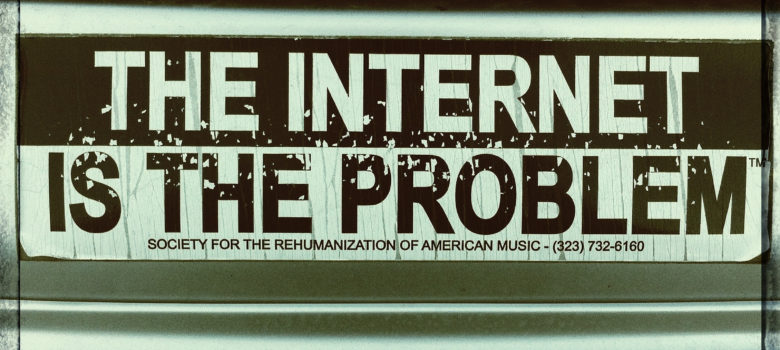My post on the hundreds of submissions to the government’s online harms consultation has garnered significant attention, including a front page news story from the Globe and Mail (I was also pleased to appear on Evan Solomon’s show and the Dean Blundell podcast). The coverage has rightly focused on previously secret submissions such as those from Twitter likening the Canadian plan to China or North Korea and the National Council of Canadian Muslims, who warn that the legislation would have risked constituting “one of the most significant assaults on marginalized and racialized communities in years.” If you haven’t read it, please read my post summarizing some of the key findings or access the entire package that was obtained under the Access to Information Act.
Canadian Heritage Minister Pablo Rodriguez would presumably like Canadians to move past the consultation by arguing that there is a new panel that has been tasked with reviewing the issues and making recommendations. Yet there remain several concerns about both online harms and the broader Internet regulation plan that should not be overlooked or swept under the rug.
First, the secrecy associated with the consultation was wrong for any government and particularly wrong for a government that ran on creating an open and transparent government. In fact, Prime Minister Justin Trudeau literally introduced a private members bill in 2014 that he said would create government that is “open by default.” Only disclosing submissions when compelled to do so by the Access to Information Act is not transparency. To see the government’s commitment abandoned and it revert to the very secrecy that it criticized while in opposition should not be overlooked. The online harms policies were awful, but the Canadian Heritage consultation process was a betrayal.
Second, the notion that the government was simply consulting on some ideas and will now course correct requires Canadians to overlook the reality that the actual plan was to introduce this as a bill last year. Then Canadian Heritage Minister Steven Guilbeault promised the bill for months, even suggesting it would be introduced with only days left in the Parliamentary calendar. If the consultation read like the government had already made up its mind, it is because Canadian Heritage officials had. The only reason there even was a consultation is that then Bill C-10 became controversial, Guilbeault proved to be an awful communicator, and the government decided with an election upcoming it was too risky to introduce another Internet regulation bill. But make no mistake, the proposals roundly criticized by Canadians was the government’s plan.
Third, the “What We Heard” report that Rodriguez released significantly understated the extent of the public criticism and feedback. In some instances, it omitted it altogether, such as the CBC recommendation for special protection for journalists or the telecom companies concerns about mandating disclosure of basic subscriber information without judicial oversight. Where the criticisms are mentioned, they are often softened. For example, there is nothing approaching the impact of Twitter saying the proposal:
sacrifices freedom of expression to the creation of a government run system of surveillance of anyone who uses Twitter. Even the most basic procedural fairness requirements you might expect from a government-run system such as notice or warning are absent from this proposal
Without revealing who said what, the impact was also dulled. I wrote about the What We Heard report and having now seen the actual submissions, feel misled.
Fourth – and perhaps most importantly – this is part of a larger Internet regulation plan. For Canadian Heritage, there are three elements: the Online Streaming Act (Bill C-11), the Online News Act (Bill C-18), and the re-branded Online Safety Act that will be forthcoming. All three start from the same position, namely one that sacrifices freedom of expression for regulation, much of it overseen by the CRTC. In the case of Bill C-11, Rodriguez insists that he has addressed prior concerns but the reality is that his bill still opens the door to regulating user generated content in a manner unlike any other country in the world. As for Bill C-18, mandating payments for “facilitating access” to news is similarly unprecedented and quickly leading to a less independent press with massive government intervention into the news sector. The decision to largely cave to lobbying pressure has resulted in an unprincipled Internet regulation strategy that risks Canada’s reputation on the global stage as a supporter of fundamental freedoms and net neutrality. Seen in that light, the online harms consultation wasn’t an outlier, but rather is reflective of the government’s plan for regulating the Internet.











So basically, our Dictator does not like freedom of any thing that is in our Charter. As we know Dictator Trudeau despises any one that disagrees with him. This should be of now surprise. Here he complained about other countries and there freedoms. He doing what Russia China and other Dictators are doing. I hope this bill does not pass the senate. So what is next sending police to homes that criticize him our posts that the CTR find they dont like. We are becoming a police state. Trudeau is a disaster, and disgusting. SO is the NDP/ Liberal leader.
This is not a good plan. I understand that other nations are already doing and/or planning worse still. I accept that Trudeau and company mean well. And that does not preclude all of this being a Bad Idea.
This is the worst written article I have ever read…
Honestly.. wth.. you have an issue with the bill.. yet fail to actually say what the terms on the bill you don’t like.. just a bunch of stupid speak… (and tbh I have not read the bill but you haven’t either)…
What the hell is this actually supposed to mean?
Since you are clearly new around here:
1. The bill has not been tabled yet in its final form (it’s going to be delayed because of the pushback)
2. There are plenty of articles explaining what is wrong with the online harms proposal. This is based off of the consultation paper which laid out exactly what was going into the legislation. This is a follow-up to a number of them.
3. The proposal (as seen in the consultation) is very bad for a whole pile of reasons. This includes mandatory 24 hour takedowns of content, $10 million minimum penalties for anyone breaking that 24 hour deadline, no clear definition of what can be classified as “harmful”, the definition of what is “harmful” is always changing, and mandatory ISP level blocking of sites outside of the country. That isn’t even a comprehensive list.
The online harms proposal would’ve taken a wrecking ball to the open Internet under the guise of taking on “bad” content. Does that clear things up?
Oh look, it’s the political partisans trying to defend the indefensible by…what is it this time…pretending to not know how to find the context of a blog post? Yet you probably live on Twitter?
Pingback: Law and Media Round Up – 25 April 2022 – Inforrm's Blog
I hope that this draft law will not be approved. The government should care about privacy. This is essential for becoming a democratic country.
I hope Trudeau is doing right. But to me, this decision is wrong. This law could harm democracy.
This gov’t is just scary when you disagree with them,
right or wrong….good or bad,
Mine to hear/ see it all….Always my choice.